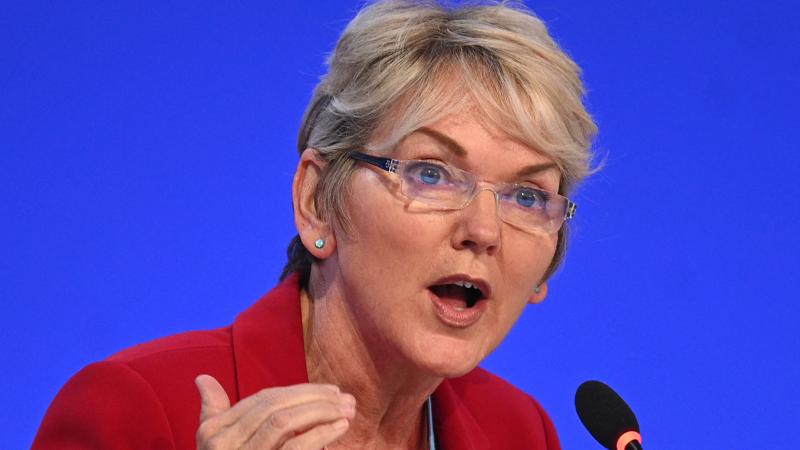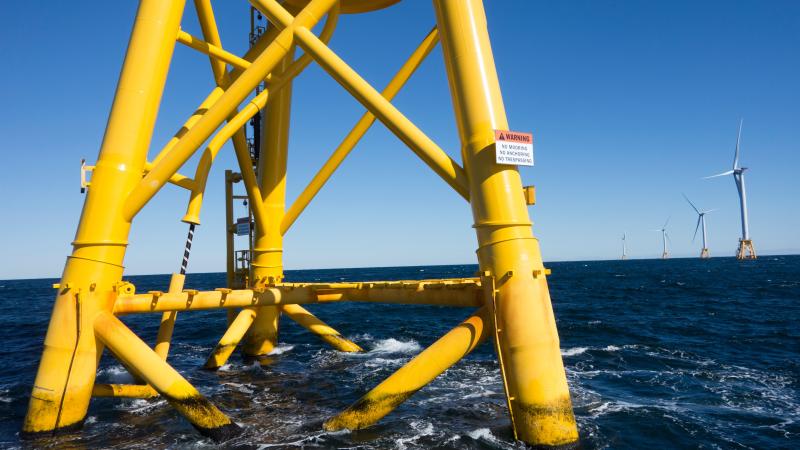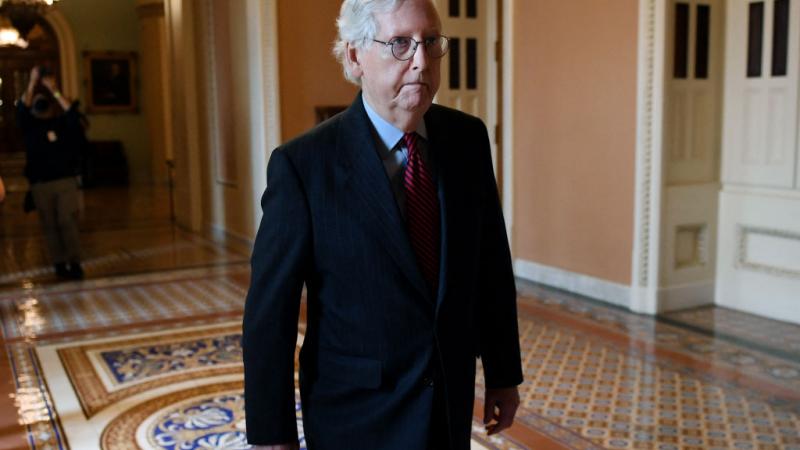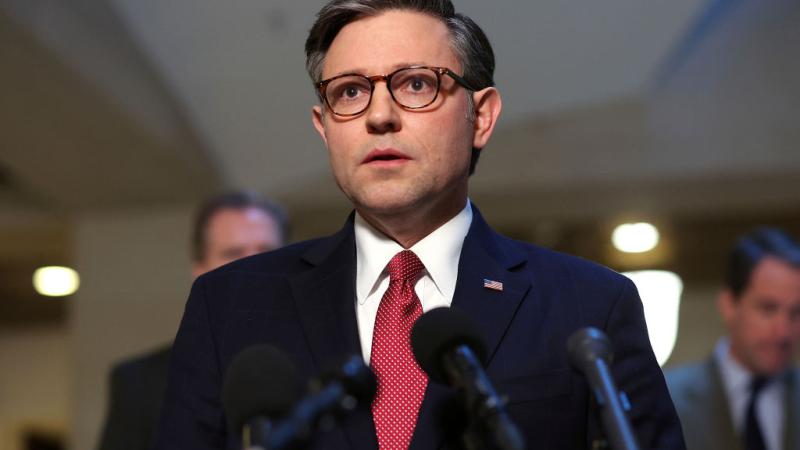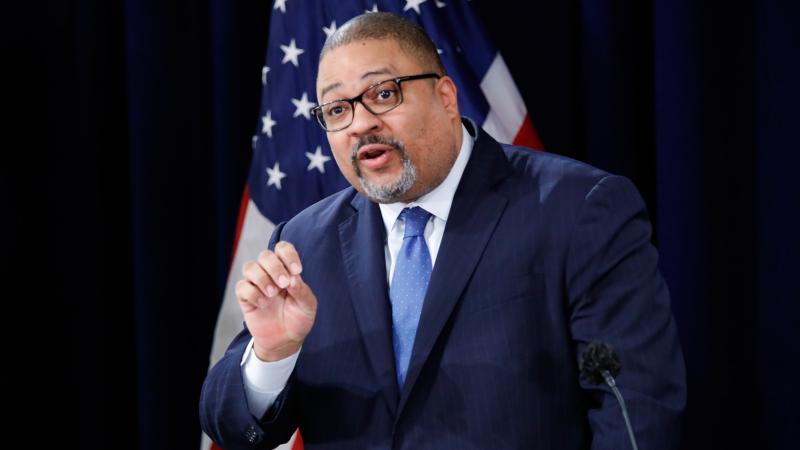Gas prices at 7-year high and rising as Biden wages offensive against domestic energy producers
Oil and gas supply is too low to meet U.S. demand, due to a combination of factors, including halting of new leases on federal land, halting the Keystone Pipeline, and increasing regulatory burdens, industry analysts argue.
"Average gas price: June 2020: $2.21 June 2021: $3.07 President Biden's economy!" Rep. Jim Jordan (R-Ohio) tweeted during the summer.
"You forgot to mention that gas prices are the same now as they were in June 2018," White House Press Secretary Jen Psaki fired back. "Or that this time last year unemployment was 11.1% — today it's 5.8%. @POTUS agrees families shouldn't pay more at the pump — that's why he's opposed to GOP proposals to raise the gas tax."
Yet, the Democrats' $3.5 trillion budget reconciliation bill reportedly includes an estimated $6 billion worth of charges on U.S. oil and gas operators on federal lands, which could effectively put mom and pop small business, and minority and Native-owned operations out of business, in addition to killing tens of thousands of jobs.
There isn't enough oil and gas supply to meet U.S. demand, due to a combination of factors, including the Biden administration halting new leases on federal land, halting the Keystone Pipeline, increasing regulatory burdens, and other measures that will take years to correct, those in the industry argue.
In one of his first acts in office, President Joe Biden, through executive order, halted the issuance of new oil and gas leases on federal lands, effectively stopping much production for existing operations. He also eliminated low-cost Canadian crude from being processed by mid-continent and Gulf Coast and U.S. refiners by prohibiting the Keystone pipeline from opening.
If Biden had not severely hampered domestic production, the U.S. would have an ample supply of oil and gas and commensurately lower costs at the pump, industry experts argue.
The $6 billion in additional costs imposed on the industry included in the budget reconciliation bill include new methane fees, inspection fees, severance fees, and bonding requirements, as well as additional requirements for operating on federal lands.
One provision increases onshore oil and gas royalty rates on federal leases from 12.5% to 20%. The increase could be unsustainable because of the time it takes to go through a bureaucratic application and review process in light of the costs associated with capital investment and regulatory compliance costs. It takes years to complete required assessments and studies associated with lease approvals, and to invest capital and infrastructure to facilitate drilling, production and delivery.
Another provision includes an additional $15 per-acre fee for expressions of interest in public lands with no guarantee that the companies applying for it would be included in eventual lease sales. The proposal might be likened to applicants paying several months' rent up front with a rental application not knowing if they'd get approved, and not having the deposit refunded if the application is rejected. The rental market would collapse, as no one would apply for a house or apartment lease under such terms.
Another proposal shortens the length of the lease from 10 to 5 years, making the lease nearly moot, since it often takes five years for a lease to be approved.
In a letter to the leaders of the House Energy Committee, the heads of Western Energy Alliance, U.S. Oil and Gas Association, International Association of Drilling Contractors, and Energy and Workforce & Technology, who represent hundreds of companies in the industry, say the proposals will eliminate tens of thousands of American jobs and decimate rural communities.
Likewise, regulatory burdens imposed on banks that effectively result in denying capital to some in the industry is stifling oil and gas production, Heywood Cooper, principal at Houston-based Argos Minerals, told Just The News. "The administration is committed to denying the energy industry access to capital, going down the same road as the Carter administration in the 1970s, which carried over into the '80s," he said.
The policy changes come as European and Asian demand for oil is limiting available U.S. domestic supply, causing gas prices — and other costs in turn — to rise.
This past week, the U.S. benchmark for crude oil, the West Texas Index (WTI), surpassed $81 a barrel, and the international benchmark, Brent Crude topped $84 a barrel.
The price of crude oil accounts for roughly 67% of the per-gallon gas price, the U.S. Energy Information Administration explains, excluding state and federal taxes.
As the WTI and Brent indexes increase, gas prices go up; as they fall, so do gas prices.
At this time last year, oil was roughly $45 a barrel, having increased from minus $35 a barrel in March — the lowest ever in WTI history.
Instead of supporting U.S. domestic production to recover losses from the bloodbath of 2020, the Biden administration called on OPEC+ to increase crude supply — making the U.S. even more dependent on foreign oil.
In a financial note to investors, Marko Kolanovic, chief global market strategist for JP Morgan, offered reassurance that "even with oil at $130 or $150, equity markets and the economy could function well (with some rebalancing and capital rotations)," The Street reported.
"All of the major asset classes (bonds, stocks, real estate, etc.) have increased about 50% or more, while oil has declined 25% over the last decade," Kolanovic added. "Oil is by all cross-asset comparisons cheap today."
The WTI has never reached $130 or $150 a barrel in U.S. history.
By way of comparison, the current price of $4.44 a gallon in California at $80 a barrel would be over $8 a gallon at $150 a barrel. In Texas, it would be $5.45, according to Kolanovic's forecast.
While these prices seem astronomical to most Americans, "Americans don't understand how good we've had it," Cooper adds.
"People in Africa, Asia and Europe already pay far more for gasoline than we do by the liter," said Cooper, noting that "people living in poorer countries in Africa" pay $3 per liter, which would be equivalent to almost $12 a gallon by comparison.

